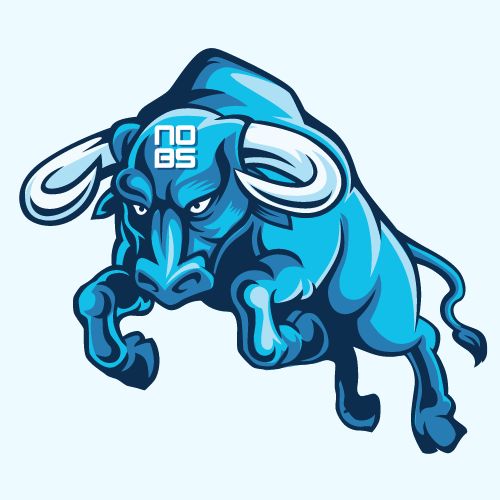Unlock Your Future: Why Taking an Artificial Intelligence Course is Your Next Step
In today's fast-evolving era of technology, artificial intelligence (AI) has emerged as a game-changing force, transforming industries, businesses, and even the very fabric of our existence. From self-driving cars to personalized recommendations on streaming platforms, AI surrounds us. But how do you join this exciting field? The answer lies in taking a world-class artificial intelligence course. Whether you are an absolute beginner or a seasoned practitioner looking to level up, an AI course is capable of opening up new doors, broadening your career horizon, and gaining a more in-depth understanding of one of the strongest technologies of the contemporary world. Here we explore why a course in artificial intelligence is essential, what you can expect from a course, and how to choose the right program for the task.
Related: Why a Master's in Artificial Intelligence May Be Your Next Giant Leap
Why an Artificial Intelligence Course Matters
Artificial intelligence is no longer a niche topic that's the domain of the likes of technology firms or the lab. It's a skill set that is a necessity that companies in multiple sectors such as healthcare, finance, marketing, and manufacturing require. The world AI market, as per recent estimates, is likely to reach $407 billion by 2027 at an unprecedented rate of growth. With such explosive growth, those who are aware of AI are highly sought after, and those who are not aware are likely to be left behind.
An artificial intelligence course is the foundation you need to thrive in this dynamic environment. Whether you want to build AI models, interpret data, or just understand how AI is transforming your company, these courses provide you with hands-on practice and theoretical grounding. For students, career shifters, and even enthusiasts, an AI course is a gateway to innovation and problem-solving.
Plus, AI isn't about coding or algorithms—it's about creativity, strategy, and ethics. A great artificial intelligence course will teach you how to collaborate with the ethical issues of AI, such as bias within machine learning models, privacy, and the social impact of automation. By doing this, you're not only technically competent but also socially sound.
What You'll Learn in an Artificial Intelligence Course
So, what do you get on an artificial intelligence course? While the specifics depend on the program, most courses will involve some mix of theory and project-based work. This is a summary of what you can expect to see:
- Fundamentals of AI and Machine Learning: You’ll start with the basics, such as what AI is, how it differs from machine learning and deep learning, and its real-world applications. You’ll learn about key concepts like neural networks, natural language processing (NLP), and computer vision.
- Programming for AI: Most artificial intelligence courses emphasize programming languages like Python and R, which are essential for building and deploying AI models. You’ll also get familiar with libraries and frameworks such as TensorFlow, Keras, and PyTorch.
- Data Science and Analytics: AI thrives on data, so you’ll dive into data collection, cleaning, and analysis. Understanding how to work with big data sets and extract meaningful insights is a core component of any AI curriculum.
- Ethics and Responsible AI: As AI becomes more pervasive, understanding its ethical implications is crucial. Courses often include modules on fairness, transparency, and accountability in AI systems.
- Capstone Projects and Real-World Applications: The majority of programs have a capstone project where you apply your knowledge to solve an existing problem that occurs in the real world. This can include developing a chatbot, optimizing a supply chain, or creating a predictive model for customer behavior.
By the end of an artificial intelligence course, you’ll have a portfolio of projects that showcase your skills to potential employers. This hands-on experience is invaluable, as it bridges the gap between theory and practice.
Who Should Take an Artificial Intelligence Course?
An artificial intelligence course isn’t just for computer science graduates or tech enthusiasts. It’s designed for a wide range of learners, including:
- Career Switchers: If you'd like to make a career transition from another field to tech, an AI course can provide you with the skills necessary to do so. Marketing, finance, and healthcare fields are increasingly seeking professionals who understand AI.
- Current Professionals: If you already have a job in tech, studying artificial intelligence can put you one step ahead. Upskilling to AI can mean promotions, higher salaries, and more challenging projects.
- Students and Recent Graduates: For students or recent graduates, studying AI can give you an advantage in the market. Top companies search first for candidates with AI experience.
- Entrepreneurs and Innovators: Whether you're starting a company or developing a new product, AI can be impactful. Through an artificial intelligence course, you can learn the basics and integrate AI into your product or service.
Whether you're experienced or not, an artificial intelligence course can be tailored to your level of experience, from beginner courses to master's programs.
How to Choose the Best Artificial Intelligence Course
With so many options to select from, picking the ideal course in artificial intelligence can be quite challenging. Reflect on these ensuing factors:
- Focus and Curriculum: Ensure that you choose a course that fits your interest. Should you become a machine learning, robotics, or ethics in AI specialist? See to it that the curriculum explores what you want most to learn.
- Format and Flexibility: Decide if you prefer an in-person, online, or hybrid format. Online options allow for flexibility, ideal for professionals, whereas in-person formats yield more networking opportunities.
- Instructor Expertise: Check the qualifications of the professors. Do they possess industry expertise or academic backgrounds with practical application? Past students' reviews and referrals can be useful as well.
- Cost and Time: AI courses are highly unpredictable in price and time. Others are free and flexible, whereas some could cost up to thousands of dollars and several months. Consider your budget as well as the amount of time you can commit.
- Certification and Results: Does the course offer a certificate or degree? Will it be a lead into a job or career opportunity? Consider programs with strong industry links and placement services.
Great websites like Coursera, edX, Udacity, and even MIT and Stanford universities have great artificial intelligence courses. Bootcamps and corporate training programs are perfect for practical training as well.
The Future is Bright for AI Learners
Enrolling in an artificial intelligence course is more than education—it's an investment in your future. The more advanced AI gets, the more trained professionals will be needed. LinkedIn indicates AI specialist roles have seen a 74% increase in demand over recent years, and this is only expected to grow.
Beyond career benefits, learning about AI can be immensely fulfilling at an individual level. You'll learn to cultivate critical thinking and problem-solving, along with a more profound sense of how technology might solve complex challenges. If you want to develop the next top AI startup or simply wish to understand how algorithms influence your social media news feed, an artificial intelligence course provides you with the tools you need to get there.
Getting Started: Your Next Steps
Ready to make the leap? Start by researching artificial intelligence courses that fit your interests and schedule. If you're new to it, find courses with beginner-friendly introductions. If you have some experience, find advanced courses. Most of them offer free trials or introductory modules, so you can test the waters before jumping in.
Join online forums, webinars, and subscribe to AI thought leaders to keep yourself motivated. Platforms such as X are great places to connect with other learners and professionals. Free resources such as YouTube tutorials and open-source projects can also be utilized to assist your learning.
In summary, an artificial intelligence course is your key to proficiency in one of the most vibrant industries of the 21st century. Be it career enhancement, curiosity to learn, or the need to contribute, it is the best time to make a beginning now. The potential of AI lies before you—you just need to take the leap today and have the power unleashed to unlock the potential within.
Related: Why an Online Course in AI is Your Ticket to the Future
DEALS DELIVERED TO YOUR INBOX.
Subscribe now for top-notch shopping & Investing advice. Receive hot Vouchers into your wallet
By submitting your information you agree to the Terms & Conditions and Privacy Policy
Related Articles

Del Sol Design Decoupage Christmas Ornament Class (Today • 10:00 AM, 39659 Horse Run Dr, From $20.00)

See-Through Slip Dress Layering: 10 Top Ideas for Effortlessly Chic Style

Why HVAC Proposal Software is Essential for Your Business

Transform in Minutes with These 10 Easy, Simple Halloween Makeup Looks for 2025 – Try Them Now!

Top 14 Stone Fruit Fragrances That Smell Juicy, Warm, and Irresistibly Soft

HVAC Supplies Store 2025: Your Guide to Top-Quality Tools
Popular Brands
View all
Spacely AI
5 Coupons Available

Fashionistots
5 Coupons Available

GravityWrite
5 Coupons Available

Warpvideo AI
5 Coupons Available

No BS Crypto
5 Coupons Available

Fulltext Search
5 Coupons Available
Popular Articles
View all
How to Get the Best Discounts on AI Marketing Tools for 2024
.png)
Beet It Up: 15+ Vibrant Beetroot Juice Recipes to Boost Your Health

Step Back in Time: 10 Nostalgic Guest Attire Ideas for Unforgettable Weddings – Shop Your Look Now!

Review: Best Drones on Sale

Embracing the Tides: A Beginner’s Guide to Sea Witchery
.png)
No-Bake Dessert Top Ideas: Discover 10 Irresistible Treats You Must Try
LATEST

Last updated: Jun 6, 2025

Last updated: May 28, 2025

Last updated: Jan 30, 2026

Last updated: May 6, 2025

Last updated: Jun 19, 2025
.png)
Last updated: May 20, 2025


